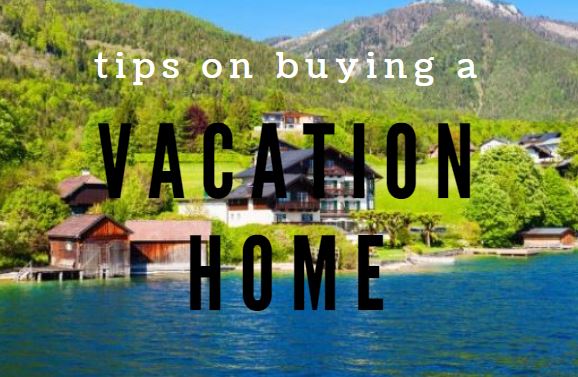
A vacation home is a perfect way to relax and unwind. Are you considering purchasing a vacation home? If so, check out these tips to get you unwinding in no time! by James Shea, Media Lab.
A vacation home is a perfect way to relax after a busy workweek or serve as a getaway for an extended period of time during your retirement years. You have various options when selecting a vacation home: in the country, at the beach, in the mountains, or by a lake.
While a variety of people purchase vacation homes, buyers are usually between the ages and 62 and 91, according to the 2017 NAR Investment and Vacation Home Buyers Guide from the National Association of Realtors. Buyers generally spend less on a vacation home than a primary residence. The NAR data found that the median price for a vacation home in 2016 was $200,000. That compared to $215,000 for a primary residence. The top location to purchase a vacation was home in the South, and single-family homes were the most common type of property purchase.
It’s a complicated and emotional process when buying a vacation property. Here are some tips if you are considering a buying a vacation home:
Choose the Location Carefully
Location. Location. Location. That is the mantra of real estate. The same philosophy holds true for a vacation home. You should focus on areas with appreciating real estate prices. You don’t want to get stuck underwater when you go to sell the property down the road. Talk with local real estate specialists in areas where you like. They will understand the real estate climate, and they can inform you about the trends. Often the asking price for real estate is more flexible in vacation areas because the demand can be lower than in urban areas. You are most likely not going to be competing with other buyers, but it’s best to talk about this with a real estate professional.

Rent First
Popular vacation areas are often filled with rentals. You should rent a place in an area where you are considering buying. You don’t want to make a decision on a vacation home without experiencing the region firsthand. You can dine at local restaurants and shop at the markets. It’s a good idea to talk with locals and other vacationers. You will get a better sense of the place and whether it is the right fit.
Take a Moment and Breathe
Buying a vacation home is exciting. You will get to spend valuable time relaxing and recharging. You don’t, however, want to make a decision too quickly. You might fall in love with a particular piece of property, but realize later it was the wrong decision. You should take a few days after considering a property before making a decision. It’s better to pass on something when the deal isn’t perfect.
Get a Budget
The finances for a vacation home can be complicated. Sometimes, a group of people will come together and purchase the property. Time is divvied up between the owners. In other circumstances, you might purchase the property yourself, and rent the property when you are not occupying it. You need to put together a budget and determine if a vacation home is within your means. Unlike a primary residence, a vacation home is a luxury.
Part of the budget process needs to include speaking with a tax specialist. A second home can have major tax implications, and that has to be factored into the decision-making process.
Have a Rental Plan
If you are planning to rent the property, you need a plan. You need to research the rules on rental properties. Does the property have a homeowners association? Some HOAs have very strict rules on rentals. For example, the association might limit the number of properties that can be rented, or it might only allow homeowners to offer weekly rentals.
You need to be realistic when developing a rental budget. You are not going to rent the property 100% of the time. You should set the projected number low, so you are not paying the extra costs out of your own pocket.

Look at Alternative Ownership Options
You might look at other forms of ownership. Timeshares and fractional ownership are two examples, but equity is calculated differently. Many people have enjoyed these types of ownership models, but you just need to be careful when buying into these types of arrangement. You need to make sure you fully understand the financial commitment and how much time you are able to spend at the property each year.
Know How Often You Will Really Visit
You need to be realistic about how much time you are going to spend at the property. Your family needs to discuss the commitment it’s willing to make to travel and visit the property. People too often buy a vacation home with great intentions and never spend quality time at it.
Understand the Maintenance Commitments
Every property needs maintenance. That can be cleaning out the gutters in the fall or fixing a leaky faucet. When preparing a budget, you need to understand the financial obligations of maintenance. Are you willing to pay someone to perform the maintenance? Can you perform some of the routine maintenance yourself?
Understand Taxes, Insurance, and Other Costs
A property can have utilities, HOA fees, taxes, and others costs associated with it. These costs need to be part of the budget. Also, you need to consider what amenities will be offered if you rent the property. Do you need to provide internet and cable? Would passes to a community pool entice people to rent the property? Everything needs to be considered when developing the budget.
See original article here.
Re-posted by Scott Freerksen “The Lake Guy”
